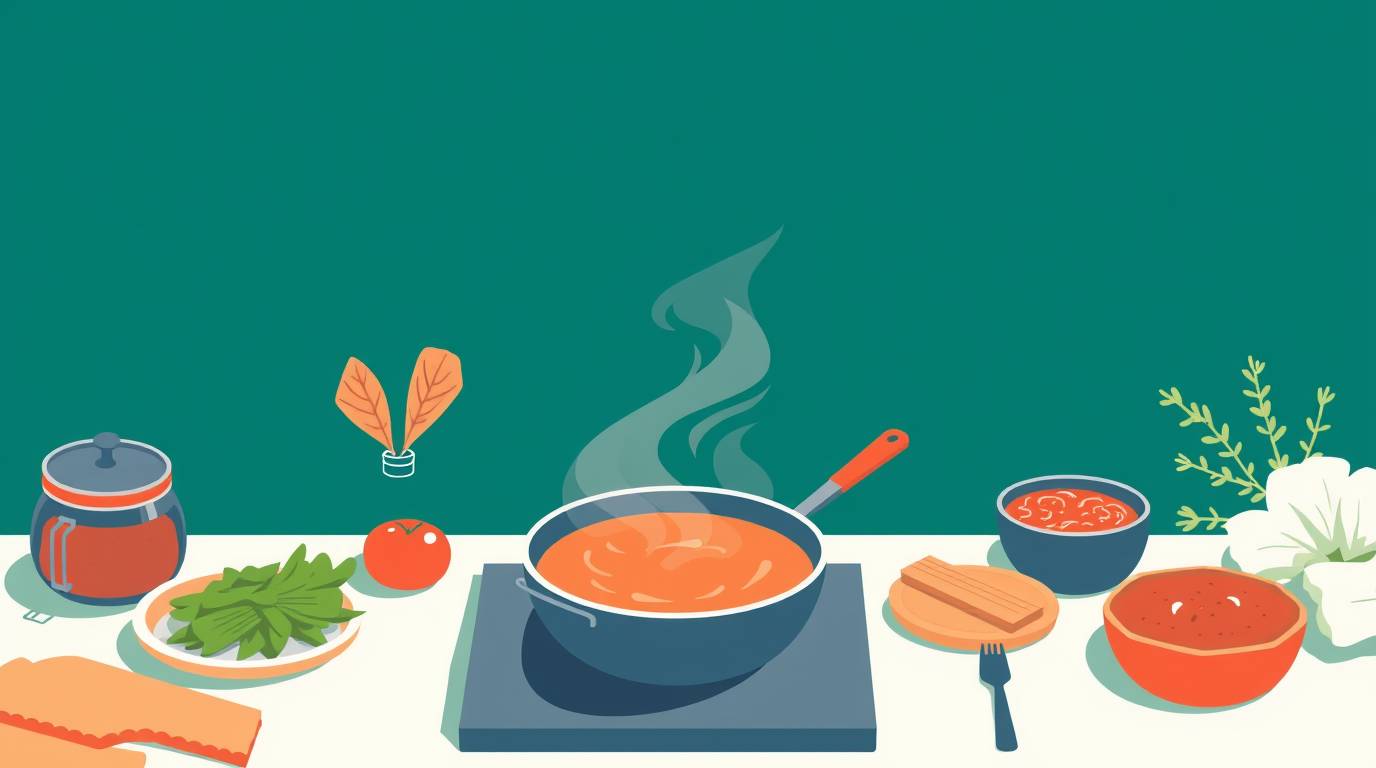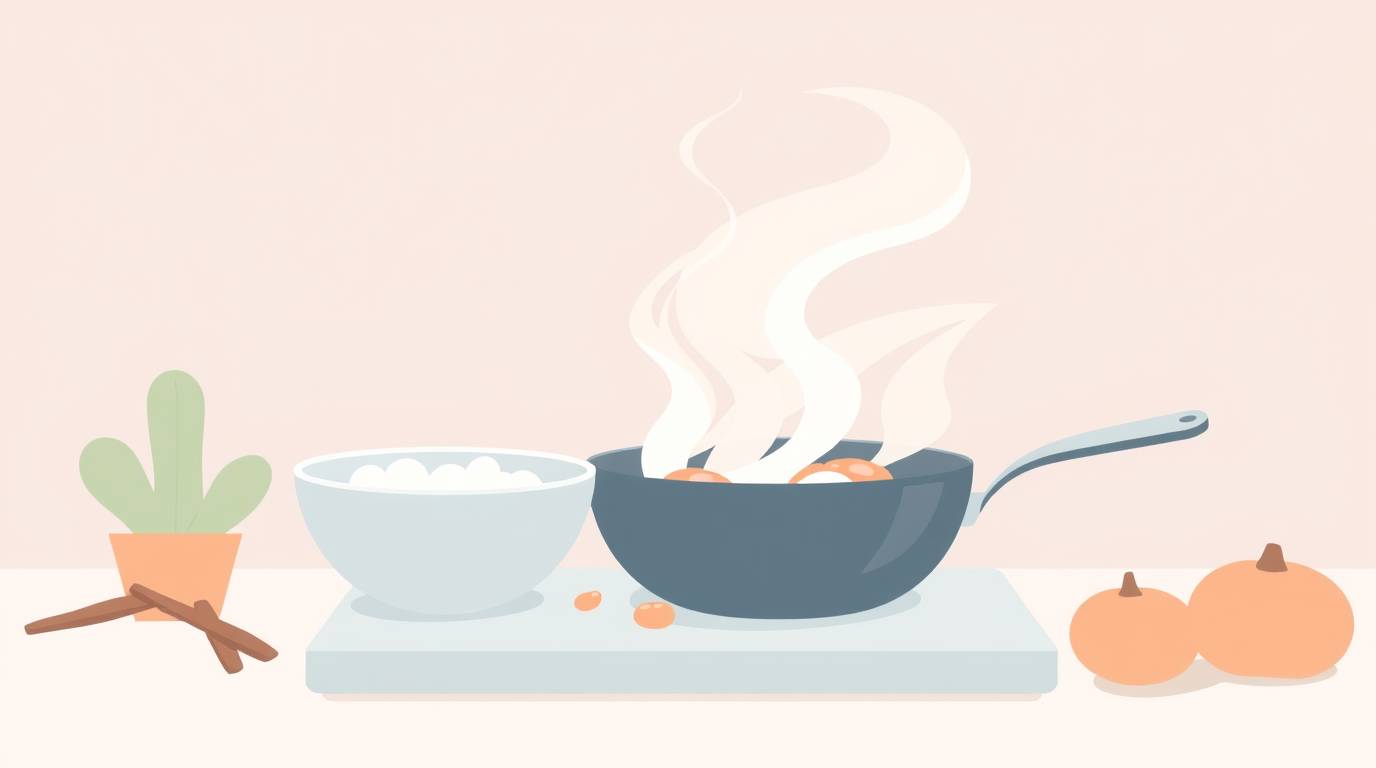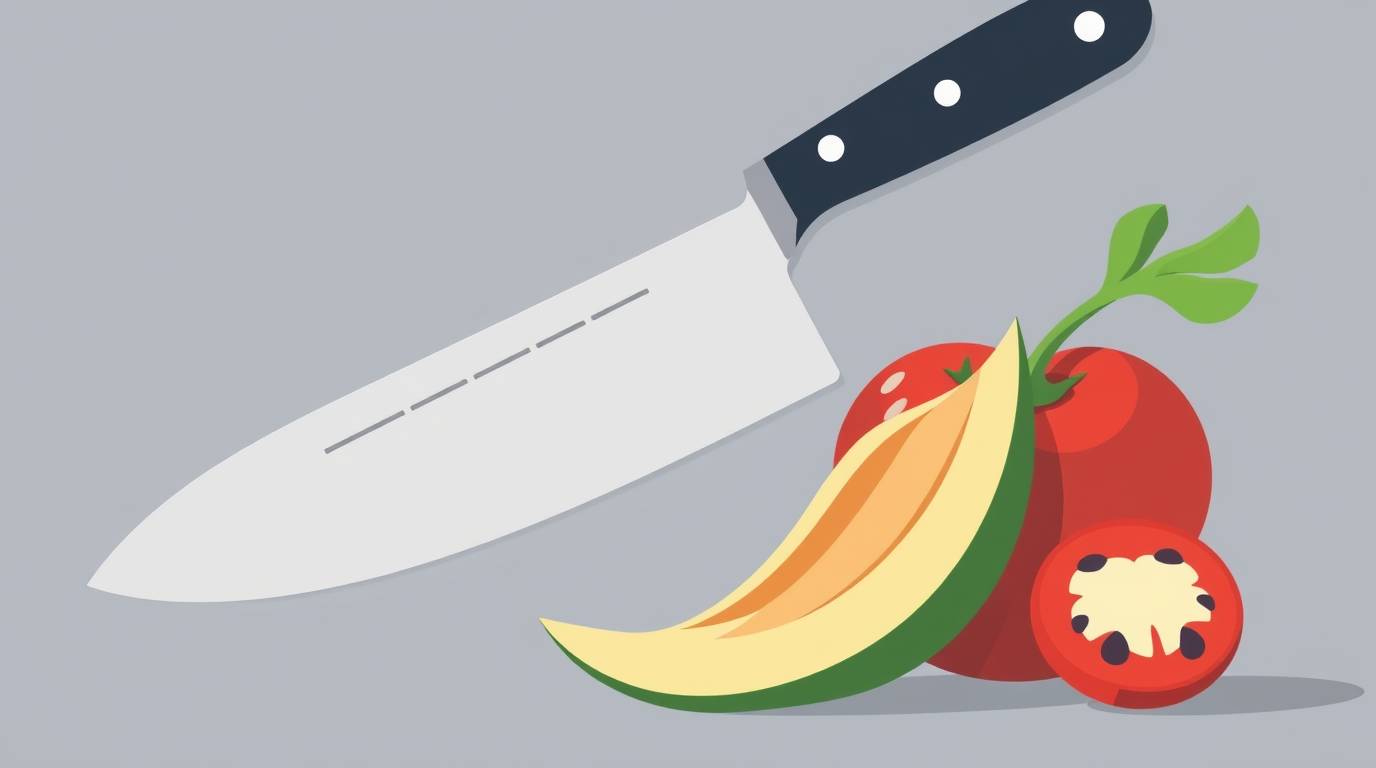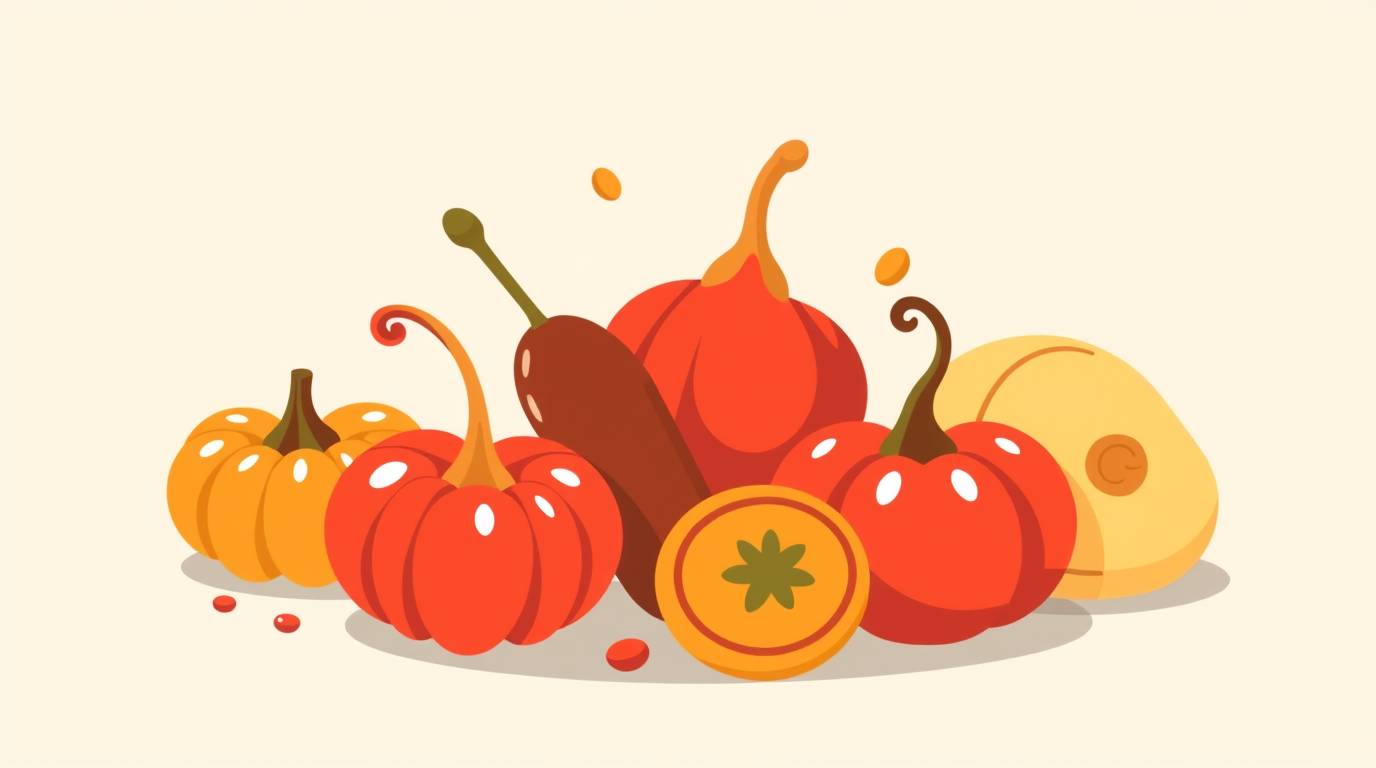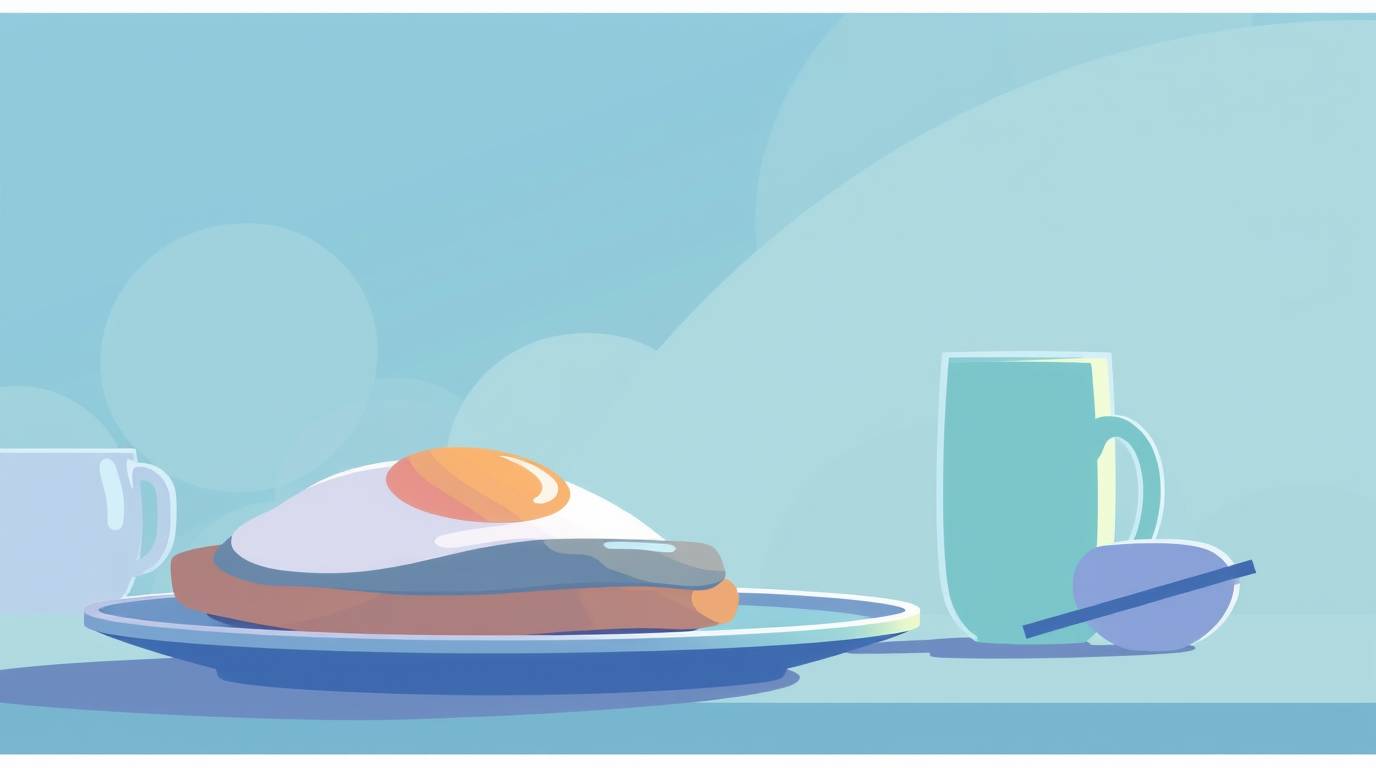Table of Contents
Health Benefits
Control Over Ingredients
When you cook at home, you have complete control over what goes into your food. Unlike restaurants or processed foods where hidden ingredients lurk, home cooking gives you the power to choose:
- The quality and freshness of your ingredients
- The amount of salt, sugar, and fat in your meals
- Whether to include preservatives or artificial additives (hint: you don't need to!)
- Organic, local, or sustainably sourced options
This control directly translates to better health outcomes, as you can prioritize nutrient-dense whole foods while minimizing potentially harmful additives.
Portion Control
Restaurant portions have grown significantly over the decades, often serving 2-3 times what constitutes a healthy portion. Cooking at home allows you to:
- Serve appropriate portion sizes
- Avoid the temptation to "clean your plate" when faced with oversized restaurant servings
- Package leftovers appropriately for future meals
- Gradually adjust portion sizes to match your nutritional needs
Key Takeaway
Studies show that people who regularly cook at home consume about 200 fewer calories per day than those who eat out frequently, which can translate to significant weight management benefits over time.
Nutritional Awareness
The process of cooking educates you about nutrition in a practical, hands-on way. As you prepare meals, you naturally become more aware of:
- The nutritional profiles of different ingredients
- How to create balanced meals
- Which foods provide specific nutrients your body needs
- How to combine foods for optimal nutritional benefit
This awareness extends beyond cooking time, influencing your food choices even when dining out or grocery shopping.
Dietary Restriction Management
For those with food allergies, intolerances, or specific dietary needs, cooking at home isn't just convenient—it's essential. Home cooking allows you to:
- Completely avoid allergens or problem ingredients
- Adapt recipes to suit specific dietary protocols like keto, vegan, or gluten-free diets
- Experiment with alternatives until you find what works for your body
- Avoid cross-contamination that can happen in restaurant kitchens
Reduced Processed Food Consumption
Processed foods are typically high in sodium, sugar, unhealthy fats, and preservatives, while being lower in essential nutrients. When you cook from scratch:
- You naturally consume fewer processed ingredients
- You're more likely to incorporate whole foods like vegetables, lean proteins, and whole grains
- You minimize exposure to the additives and ultra-processed ingredients that can contribute to chronic health conditions
- Your meals contain more fiber, vitamins, and minerals
Financial Benefits
Save Money on Dining Out
One of the most immediate benefits of home cooking is financial. The markup on restaurant meals can be anywhere from 300% to 500% above the cost of ingredients. Consider:
- A simple pasta dish that costs $15-20 at a restaurant might cost $3-4 to make at home
- A family of four might spend $60-100 dining out versus $15-25 for a home-cooked meal
- Specialty coffee drinks costing $5-7 each can be made at home for less than $1
Over the course of a year, even replacing just a few restaurant meals per week with home cooking can save thousands of dollars.
Bulk Preparation Savings
Learning to cook enables you to take advantage of buying and preparing food in bulk:
- Purchasing larger quantities of staple ingredients at lower per-unit costs
- Preparing multiple portions at once, saving time and energy costs
- Freezing extra portions for future meals
- Taking advantage of sales and seasonal pricing without food going to waste
Reduce Food Waste
The average American household wastes approximately 30% of the food they purchase. Cooking skills help reduce this waste through:
- Using leftover ingredients creatively in new dishes
- Understanding how to properly store different foods to extend freshness
- Knowing how to preserve foods through freezing, canning, or fermenting
- Being able to assess when food is actually spoiled versus just past its "best by" date
Tip
Not sure what to do with leftover ingredients? Try using an AI recipe generator that can suggest creative ways to use what you have on hand and prevent food waste.
Budget-Friendly Meal Planning
Cooking skills enable effective meal planning, which is one of the most powerful money-saving tools in your arsenal:
- Creating meals around sale items and seasonal ingredients
- Planning a week's worth of interlocking recipes that use shared ingredients
- Preparing affordable protein sources (like beans, lentils, and less expensive cuts of meat) in delicious ways
- Making your own versions of expensive convenience foods (spice blends, sauces, baked goods)
Personal Development
Creative Expression
Cooking is a creative art form accessible to everyone. It provides:
- A creative outlet that produces tangible, enjoyable results
- Opportunities to experiment with flavors, textures, and presentation
- A way to express cultural identity and personal taste
- The satisfaction of creating something beautiful and delicious from simple ingredients
Many people find that cooking allows them to exercise creativity in ways their day jobs might not, providing a valuable counterbalance to other areas of life.
Stress Relief
The act of cooking can be meditative and therapeutic, offering:
- A mindful activity that requires presence and attention
- Rhythmic, repetitive motions like chopping or stirring that can be calming
- A productive way to channel energy when feeling anxious or stressed
- Sensory engagement with aromas, tastes, and textures that can be grounding
For many people, the kitchen becomes a sanctuary where they can unwind after a hectic day.
Confidence Building
Mastering cooking skills builds confidence that extends beyond the kitchen:
- Successfully learning techniques provides immediate positive feedback
- Overcoming cooking challenges proves your ability to learn and adapt
- Receiving compliments on your cooking validates your efforts
- Gradually increasing your repertoire demonstrates personal growth
This confidence often transfers to other areas of life, reinforcing the belief that you can learn new skills successfully.
Cultural Exploration
Food is a gateway to understanding cultures around the world:
- Learning to cook dishes from different cultures expands your worldview
- Understanding traditional cooking methods provides insight into cultural values and history
- Food traditions connect you to your own heritage and the heritage of others
- Cooking becomes a form of travel and exploration without leaving home
Key Takeaway
Cooking allows you to experience authentic international flavors that may not be available in local restaurants, offering a deeper and more genuine cultural experience than dining out.
Skill Development
Cooking develops a range of transferable skills:
- Time management and multitasking
- Following complex instructions
- Adapting to unexpected situations
- Understanding cause and effect relationships
- Developing sensory awareness and intuition
These skills have applications far beyond food preparation, benefiting many aspects of personal and professional life.
Social Benefits
Impressive Entertaining
Being able to cook well transforms your ability to host and entertain:
- Welcoming friends and family for memorable meals creates lasting bonds
- Hosting becomes more affordable, enabling more frequent social gatherings
- Personalizing menus for guests shows attentiveness and care
- Creating tradition-worthy dishes makes you the host people look forward to visiting
Cooking for others is one of the most fundamental ways humans show love and build community.
Family Bonding
The kitchen can become the heart of family life:
- Cooking together provides quality time away from screens
- Teaching children to cook passes down valuable life skills and traditions
- Family recipes create continuity across generations
- Meal preparation and dining together strengthen family communication
Research consistently shows that families who cook and eat together have stronger relationships and children with better outcomes.
Relationship Building
Cooking for and with romantic partners can strengthen relationships:
- Preparing a meal for someone is a meaningful gesture of care
- Cooking together requires communication and cooperation
- Creating food memories builds a shared history
- Developing cooking traditions provides relationship stability
Many couples find that cooking together becomes an important shared activity that strengthens their bond.
Community Connection
Cooking creates opportunities for community engagement:
- Participating in potlucks, bake sales, and community meals
- Sharing extra food with neighbors and friends
- Joining cooking clubs or classes to meet like-minded people
- Volunteering cooking skills for charitable purposes
These connections combat isolation and create meaningful social networks.
Life Skills
Independence
Knowing how to feed yourself is a fundamental aspect of self-reliance:
- Not depending on others or commercial services for basic sustenance
- Being able to adapt to changing financial circumstances
- Maintaining control over your nutrition regardless of external factors
- Providing for others when needed
This independence becomes increasingly valuable throughout life, particularly during challenging times.
Problem-Solving Abilities
Cooking regularly develops practical problem-solving skills:
- Substituting ingredients when something is unavailable
- Rescuing dishes when things don't go as planned
- Adapting recipes to available equipment
- Modifying cooking methods to suit time constraints
These skills foster resilience and adaptability that serve you well in all areas of life.
Warning
Don't expect perfection when you start cooking. Mistakes are an essential part of the learning process. Even professional chefs have kitchen disasters sometimes!
Getting Started with Cooking
If you're convinced of the benefits but unsure where to begin, here are some approachable ways to start your cooking journey:
Simple First Steps
- Master a few basic recipes: Start with 5-7 simple recipes you can make repeatedly
- Learn foundational techniques: Focus on basic skills like chopping, sautéing, and roasting
- Invest in key tools: You only need a few good quality items to start (chef's knife, cutting board, skillet)
- Use technology: Try Flavoreer's recipe generator to find recipes based on ingredients you already have
Overcoming Common Obstacles
- "I don't have time": Start with 15-30 minute recipes or batch cooking on weekends
- "I'm afraid of failing": Start with forgiving recipes where precision isn't critical
- "I live alone": Learn about portion scaling and freezing techniques for single servings
Resources for Learning
- Online tutorials: Visual demonstrations help with technique
- Community classes: Many communities offer affordable cooking classes
- Cooking apps: Guided cooking experiences for beginners
- Start with what you love: Begin by learning to cook your favorite foods
Conclusion
Learning to cook is one of the most valuable investments you can make in yourself. The benefits spread across nearly every dimension of life—health, finances, personal growth, social connections, and basic life skills. While it may seem daunting at first, cooking is a skill developed gradually through practice, with each small success building toward competence and eventually mastery.
In today's world of convenience foods and delivery services, cooking has become optional for many people. However, the choice to learn cooking pays dividends that these convenient alternatives cannot match. Beyond mere sustenance, cooking connects us to our food, our cultural heritage, and to each other in ways that are fundamental to human experience.
Whether you're motivated by health goals, budget concerns, creative expression, or social connections, there's never been a better time to learn to cook. With more resources available than ever before, from online tutorials to smart recipe generators like Flavoreer, the barriers to entry have never been lower.
Start small, be patient with yourself, and remember that even the most accomplished chefs began with learning to boil water. The journey of learning to cook is as rewarding as the delicious destination.
What motivated you to learn cooking, or what's holding you back? Share your experience in the comments below!
